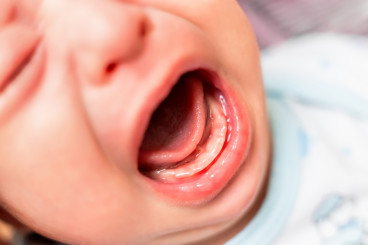Bad Breath: Common Causes and Remedies for Halitosis
Bad breath, medically known as halitosis, is a common condition that can lead to social embarrassment and affect an individual's quality of life.

Bad breath, medically known as halitosis, is a common condition that can lead to social embarrassment and affect an individual's quality of life. This article explores the various causes of halitosis, its underlying mechanisms, and effective remedies to combat this condition. By understanding the factors contributing to bad breath, individuals can take proactive steps toward maintaining better oral hygiene and health.
What is Halitosis?
Halitosis refers to a persistent unpleasant odor emanating from the mouth. It is not merely a result of food consumption but can indicate underlying health issues. This condition can be temporary or chronic, depending on its causes.
Common Causes of Bad Breath
1. Poor Oral Hygiene
Inadequate brushing and flossing can lead to the buildup of food particles and plaque, which harbor bacteria. These bacteria produce sulfur compounds that contribute to bad breath. Regular dental care is essential for minimizing these effects.
2. Food Choices
Certain foods, such as garlic and onions, contain strong-smelling compounds that can linger in the mouth and bloodstream long after consumption. These substances are broken down and released as gases, leading to noticeable bad breath.
3. Dry Mouth (Xerostomia)
Saliva plays a crucial role in washing away food particles and bacteria. A reduced saliva flow, known as dry mouth, can result from various factors including medications, dehydration, or certain medical conditions. This condition allows bacteria to thrive, increasing the likelihood of halitosis.
4. Tobacco Products
Smoking and other tobacco products can contribute to bad breath. They not only leave a distinct odor but also dry out the mouth, exacerbating the problem. Tobacco users are also at a higher risk for gum disease, which can further contribute to foul breath.
5. Gum Disease
Gingivitis and periodontitis are forms of gum disease characterized by inflammation and infection of the gums. The bacteria that cause these conditions can produce bad odors. Effective treatment and regular dental check-ups are vital for managing gum health.
6. Respiratory Tract Infections
Infections in the respiratory tract, such as sinusitis or pneumonia, can lead to postnasal drip. Mucus accumulation can contribute to bad breath as bacteria break it down, releasing foul-smelling compounds.
7. Systemic Conditions
Certain systemic diseases can manifest as bad breath. Conditions like diabetes, liver disease, and kidney failure can produce specific odors due to metabolic changes. These underlying issues necessitate medical attention and management.
8. Oral Infections
Infections in the mouth, such as abscessed teeth or oral thrush, can produce a foul odor. These infections require prompt treatment to alleviate symptoms and restore oral health.
9. Mouth Breathing
Breathing through the mouth, often due to nasal obstructions or allergies, can lead to dry mouth. This condition can exacerbate bad breath as it reduces saliva production, allowing bacteria to thrive.
10. Certain Medications
Some medications can cause dry mouth as a side effect, contributing to bad breath. Others may release compounds that are exhaled through the lungs, leading to persistent halitosis.
11. Hormonal Changes
Hormonal fluctuations, particularly during menstruation or pregnancy, can affect oral health and lead to changes in breath odor. Increased blood flow and changes in saliva production can play a role.
12. Alcohol Consumption
Alcohol can lead to dehydration and dry mouth, which can exacerbate bad breath. Additionally, certain alcoholic beverages may contain compounds that contribute to unpleasant odors.
Diagnosing Halitosis
Diagnosing halitosis, or bad breath, involves a comprehensive evaluation to identify its underlying causes. Dentists or healthcare providers typically conduct thorough dental examinations, review patients' medical histories, and assess dietary habits to pinpoint the source of the issue. In some instances, specialized tests may be necessary to determine specific health problems contributing to bad breath. Once the cause is identified, several effective remedies can be implemented to alleviate the condition.
Improving oral hygiene is fundamental; regular brushing and flossing are essential practices that should be followed at least twice a day to remove food particles and plaque that can harbor odor-causing bacteria. Staying hydrated is another crucial step, as drinking plenty of water helps keep the mouth moist and assists in washing away food debris and bacteria, particularly for those prone to dry mouth. The use of antimicrobial mouthwash, especially those containing chlorhexidine or cetylpyridinium chloride, can effectively reduce bacteria in the mouth, further combating bad breath.
Chewing sugar-free gum can stimulate saliva production, a natural defense against bad breath, making it especially beneficial after meals when brushing may not be feasible. Additionally, limiting the intake of foods known to cause bad breath, such as garlic and onions, can significantly help manage symptoms. Avoiding tobacco products is equally important, as they contribute to unpleasant odors and dry mouth.
Routine dental check-ups play a vital role in maintaining oral health, allowing dentists to identify and treat any underlying issues, such as gum disease or dental infections, that may lead to halitosis. For individuals with systemic conditions like diabetes or sinus infections, it is crucial to manage these health issues effectively, as they can contribute to bad breath.
Using a humidifier can also be beneficial, particularly during sleep, as it helps alleviate dry mouth by maintaining moisture in the air, promoting saliva production. Practicing good nutrition by consuming a balanced diet rich in fruits and vegetables can enhance oral health; foods high in fiber can help clean teeth and stimulate saliva flow. Lastly, reducing the intake of alcohol and caffeinated beverages can help maintain hydration and minimize the likelihood of dry mouth, further supporting fresh breath. Together, these strategies can significantly improve breath freshness and overall oral health.
Home Remedies for Bad Breath
Bad breath, or halitosis, can be an embarrassing issue, but there are several effective home remedies that can help combat this condition. One popular remedy is a baking soda rinse, which can neutralize odors and balance the pH levels in the mouth. By mixing a teaspoon of baking soda in a glass of water, individuals can create an effective mouth rinse that helps eliminate bad breath. Another beneficial option is apple cider vinegar, known for its antibacterial properties. Diluting one tablespoon of apple cider vinegar in a glass of water creates a mouthwash that may help reduce oral bacteria and improve breath freshness. Additionally, green tea is a great choice, as it contains polyphenols that can inhibit the growth of bacteria responsible for bad breath. Regular consumption of green tea not only contributes to fresher breath but also offers antioxidant benefits. Other remedies include chewing sugar-free gum to stimulate saliva production, which helps wash away food particles and bacteria, and eating crunchy fruits and vegetables, such as apples and carrots, which can naturally clean teeth and promote oral health. Maintaining good hydration by drinking plenty of water is also crucial, as it helps keep the mouth moist and aids in flushing out odor-causing particles. Together, these home remedies can effectively address bad breath and enhance overall oral hygiene.
Conclusion
Bad breath, or halitosis, is a multifaceted condition with various causes ranging from poor oral hygiene to systemic diseases. Understanding these causes and implementing effective remedies can significantly improve oral health and quality of life. Maintaining good dental care, staying hydrated, and seeking professional guidance when necessary are crucial steps in combating bad breath.
For those seeking affordable dental treatments, Dr.BestPrice offers a platform for dental auctions, allowing individuals to access quality care at competitive prices. Taking proactive measures can lead to fresher breath and enhanced well-being.



